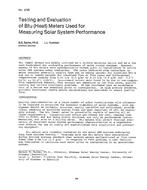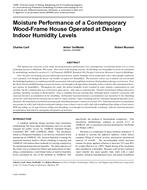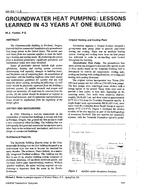The capacities of installed central air-conditioning systems in 368 recently built Florida homes were compared with Manual J load values calculated from house audit data. More than 50% of the homes had installed systems with a cooling capacity greater than 120% of the calculated Manual J value. Thirty-one percent of the 78 heat pump homes had installed heating capacities greater than 120% of the calculated Manual J value. Using submetered data from the air-conditioning system, a definite increase in peak energy use was observed for systems sized over 120% of Manual J calculations. The effect of system sizing on the system run-time fractions of units is shown. The homes that had units sized smaller than the calculated Manual J value tended to have higher percentages of maximum hourly run-time fractions. There was little difference in binned percentages of large run-time fractions between homes with installed-to-calculated ratios of 1.0 to 1.2 and those with installed-to-calculated ratios greater than 1.2.
Units: Dual
KEYWORDS: year 1997, Domestic, equipment, air conditioning, energy consumption, housing, USA, sizing, comparing, oversizing, heat pumps, heat load, calculating, unit air conditioners, electricity consumption, peak load
Citation: ASHRAE Transactions, Vol.103, Part 2, Boston 1997
Product Details
- Published:
- 1997
- Number of Pages:
- 7
- File Size:
- 1 file , 840 KB
- Product Code(s):
- D-16471


